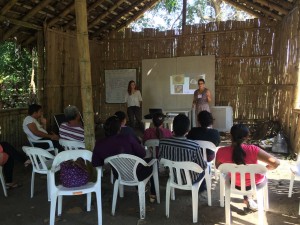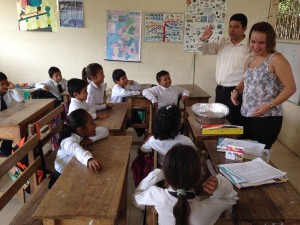Using the Wisconsin Experience as its operational framework, Wisconsin Without Borders encourages all faculty and students to move their work into a community focus with local to global applications. WWB showcases the work of faculty, students, and community partners that have traversed disciplinary and geographic boundaries so that their specialized focuses are framed in a global context, and are complemented by an inter-disciplinary engagement with benefits to the broader community. Wisconsin Without Borders recognizes this local/global model in action.
An example of this model will be presented April 12, 2017 at the Wisconsin Without Borders Joint Learning Event. This informal discussion about the winners/losers of globalization and opportunities for engaged scholarship will be led by Prof. Jane Collins, Prof. Joe Conti, and Gavin Luter.
Background
The Arboretum’s Earth Partnership program was established to engage educators and learners of all ages and backgrounds in community-based ecological restoration for healthy environments. From this initiative the Latino Earth Partnership (LEP) was developed to integrate cultural perspectives, Spanish language, and to promote local and global stewardship principles by training and engaging teachers, community members and youth from diverse backgrounds.
The Local Context
In 2014 Sarah Niesen a Madison teacher at Nuestro Mundo Community School participated in the first Latino Earth Partnership summer institute in Madison. At that institute she met UW undergraduate students Brenna O’Halloran and Lauren Feierstein who agreed to volunteer in Sarah’s classroom assisting with teaching science to Spanish-speaking students. In the spring of 2015, Feierstein and O’Halloran applied for and were awarded a Wisconsin Idea Fellowship to expand on their previous work with Dr. Catherine Woodward and the Ceiba Foundation in Ecuador, introducing an Latino Earth Partnership institute to local teachers in the area. Through their WIF award funds the students were able bring local educator, Sarah Niesen to Ecuador to model LEP best teaching practices to local area teachers. These teachers were then able to work with area elementary students, by using hands on learning activities to reinforce messages pertaining to the significance of watershed management and the problems with local deforestation.

